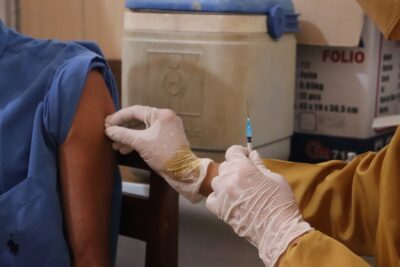by Tonya Breaux-Shropshire, PhD, DNP, FNP, MPH | Blog |
Updated 1/22/2022: Monoclonal antibodies are no longer recommended widely due to the Omicron variant. Research has shown that two out of three brands are not effective against Omicron.
How to get monoclonal antibodies treatment? Monoclonal antibodies have become the standard of care that is used to protect you from getting severely sick. Pregnant women now qualify for these monoclonal antibodies.
So far, there is a 70-80% reduction in hospitalization if you are treated with monoclonal antibodies. Monoclonal antibodies work against the Delta variant and they are safe.
You might feel okay right now, but you might turn for the worst over time. So don’t wait to get the monoclonal antibodies because they are not recommended after 10 days of symptoms.
Monoclonal antibodies work the best if you get them within 5 days of your first symptoms. It is important to know that the clock starts ticking at the first symptom, not the date of testing positive. Don’t wait to get treated, and get tested as soon as possible. (Update: Research has shown that some monoclonal antibodies are not useful against the Omicron variant and anti-virals and other drugs are now more promising)
What are Monoclonal Antibodies?
What Do You Need to Do to Get the Monoclonal Antibodies
If you have symptoms of COVID-19, the first step is to get tested as soon as possible. You can find a testing location at this link here. Testing is usually free (no out-of-pocket cost to you with insurance or uninsured).
Next, call your doctor as soon as possible for medical advice. Monoclonal antibodies can usually be given if you have had symptoms for less than 10 days. In addition, your oxygen saturation should be greater than 93% on room air to get the monoclonal antibodies.
Currently, it’s a 20 minute IV infusion that is given in a clinical setting and then you are discharged home. The monoclonal antibodies are free. You will not be charged for the monoclonal antibodies. It’s paid for by the federal government.
Your doctor will determine if you are at high risk for complications to order the monoclonal antibodies, but there could be some exceptions. Dr. David Thrasher of Alabama, says that “If you are over 12 years old, walk and talk, you likely qualify. He also says, if your doctor says that you don’t qualify, ask your doctor why not. He encourages patients to be their own advocates.
https://youtu.be/2mW1fsAAM80
According to the Louisiana Department of Health, if you have any of the symptoms below, you are at high risk:
Have a body mass index (BMI) greater than 35
• Have chronic kidney disease
• Have diabetes
• Have immunosuppressive disease
• Are currently receiving immunosuppressive treatment
• Are 65 years of age or older
• Are 55 years of age or older AND have one or more of the following:
o Cardiovascular disease
o Hypertension
Chronic obstructive pulmonary disease/other chronic respiratory disease
• Are 12-17 years of age AND have one or more of the following:
o BMI greater than the 85th percentile for their age and gender, based on clinical growth
charts
o Sickle cell disease
o Congenital or acquired heart disease https://hypertensionresistanttotreatment.com/how-to-get-monoclonal-antibodies-treatment/?preview=true
o Neurodevelopment disorders, for example, cerebral palsy
o A medical-related technological dependence; for example, tracheostomy, gastrostomy,
or positive pressure ventilation (not related to COVID-19)
o Asthma, reactive airway, or other chronic respiratory disease that requires daily
medication for control
People consider to be at high risk for the monoclonal antibodies are Black or Latino race. People with hypertension or diabetes, people 65 years old or older, and obese people are considered high risk as well.
You may be eligible to get the monoclonal if you have been exposed to COVID-19 within 96 hours. That is, if you are unvaccinated but vaccinated people would need to check with their doctor about this.

Usually, you would need to wait 30-90 days before getting the monoclonal antibodies after a COVID-19 vaccine. However, this might not be true for some patients. Call your doctor if you have been vaccinated less than 90 days and are COVID-19 positive.
If you do not have a doctor to call, contact the monoclonal antibodies call center or chat with their representative at this link.
Also, if you are COVID-19 positive, contact everyone you have been in contact with so they can get tested at day 4 after exposure if they do not have systoms. That way, they will have an opportunity to get the monoclonal antibodies. Click this link for more information about monoclonal antibodies.
Click here to learn how to monitor your blood pressure at home.